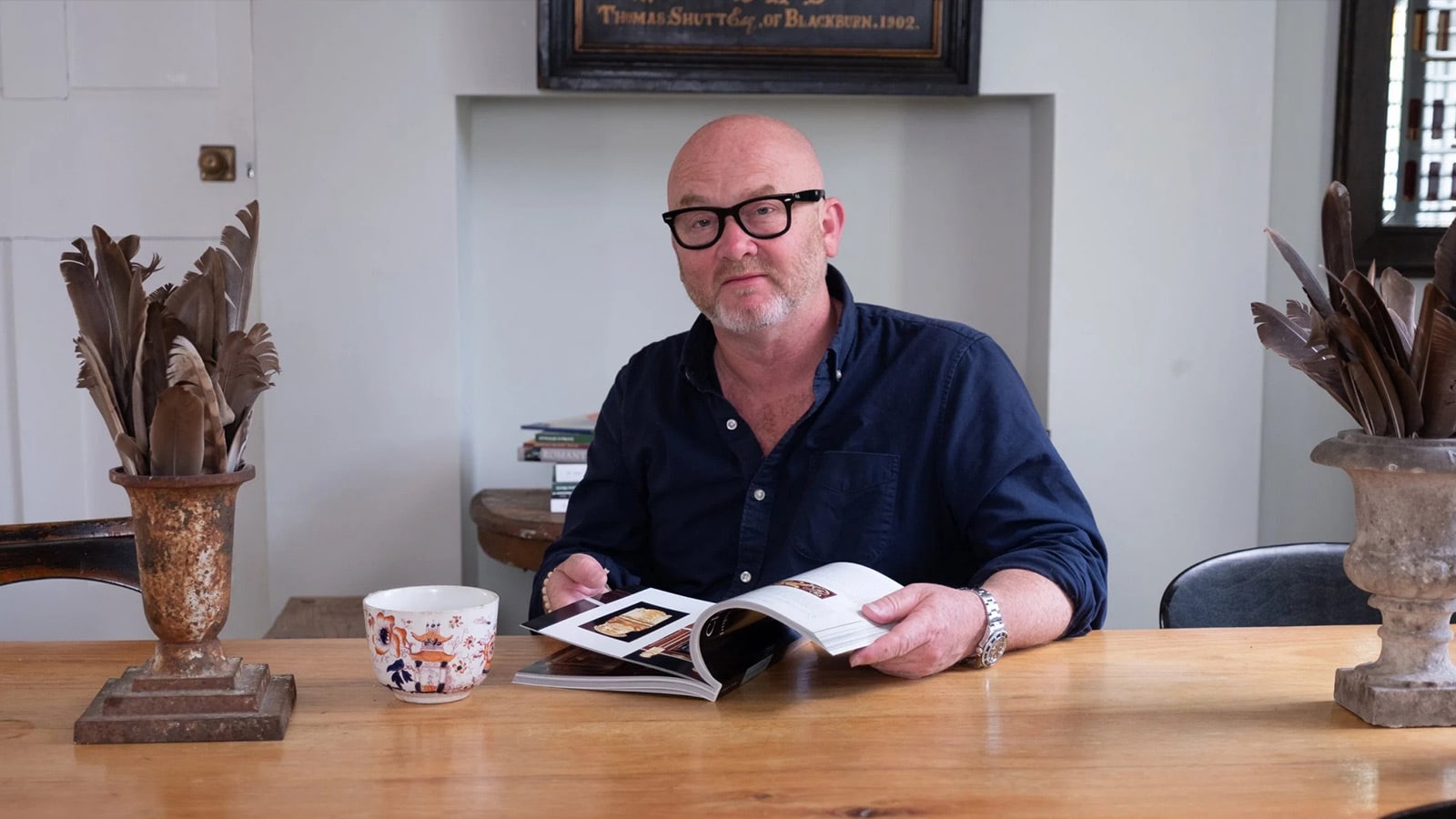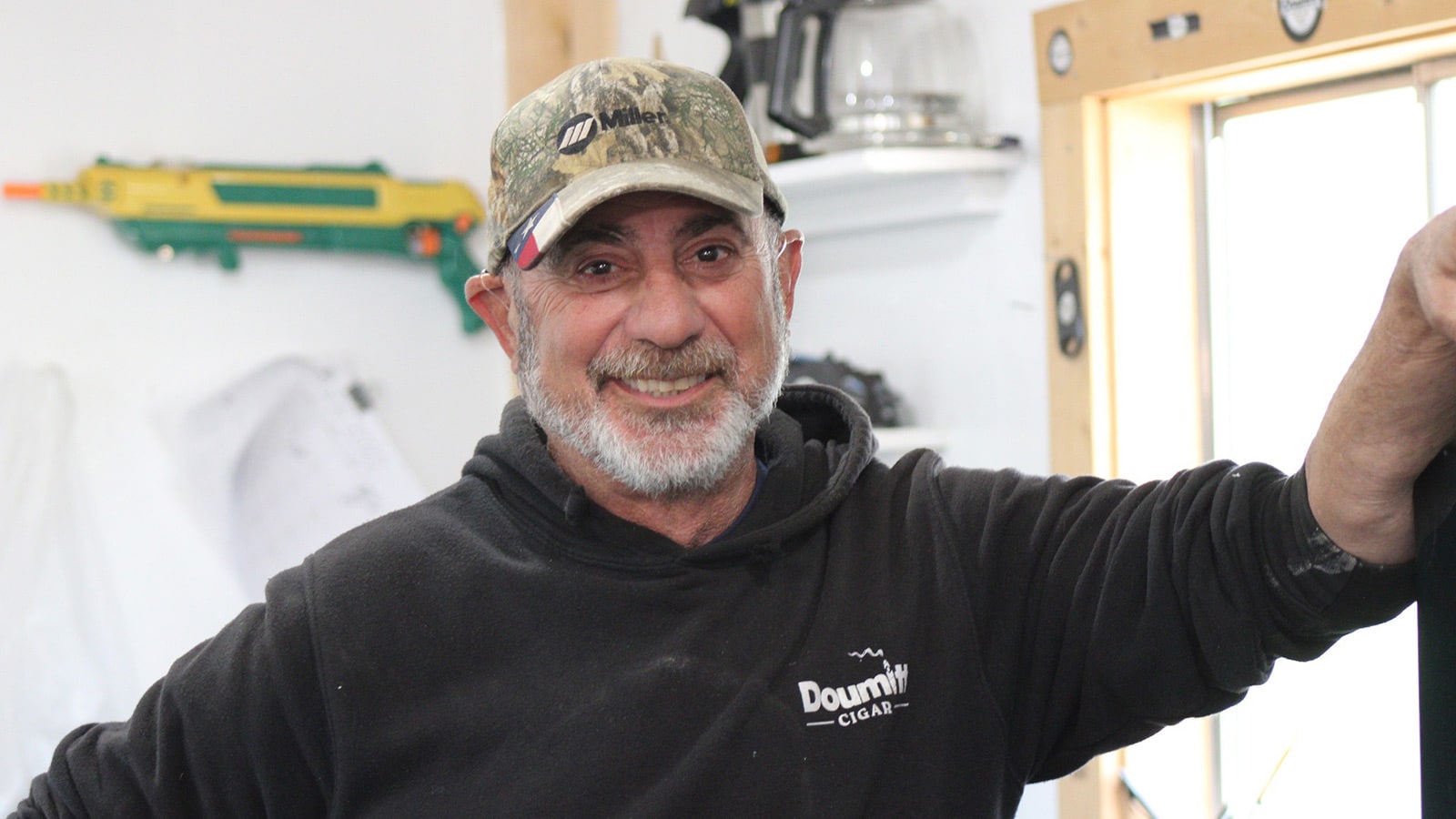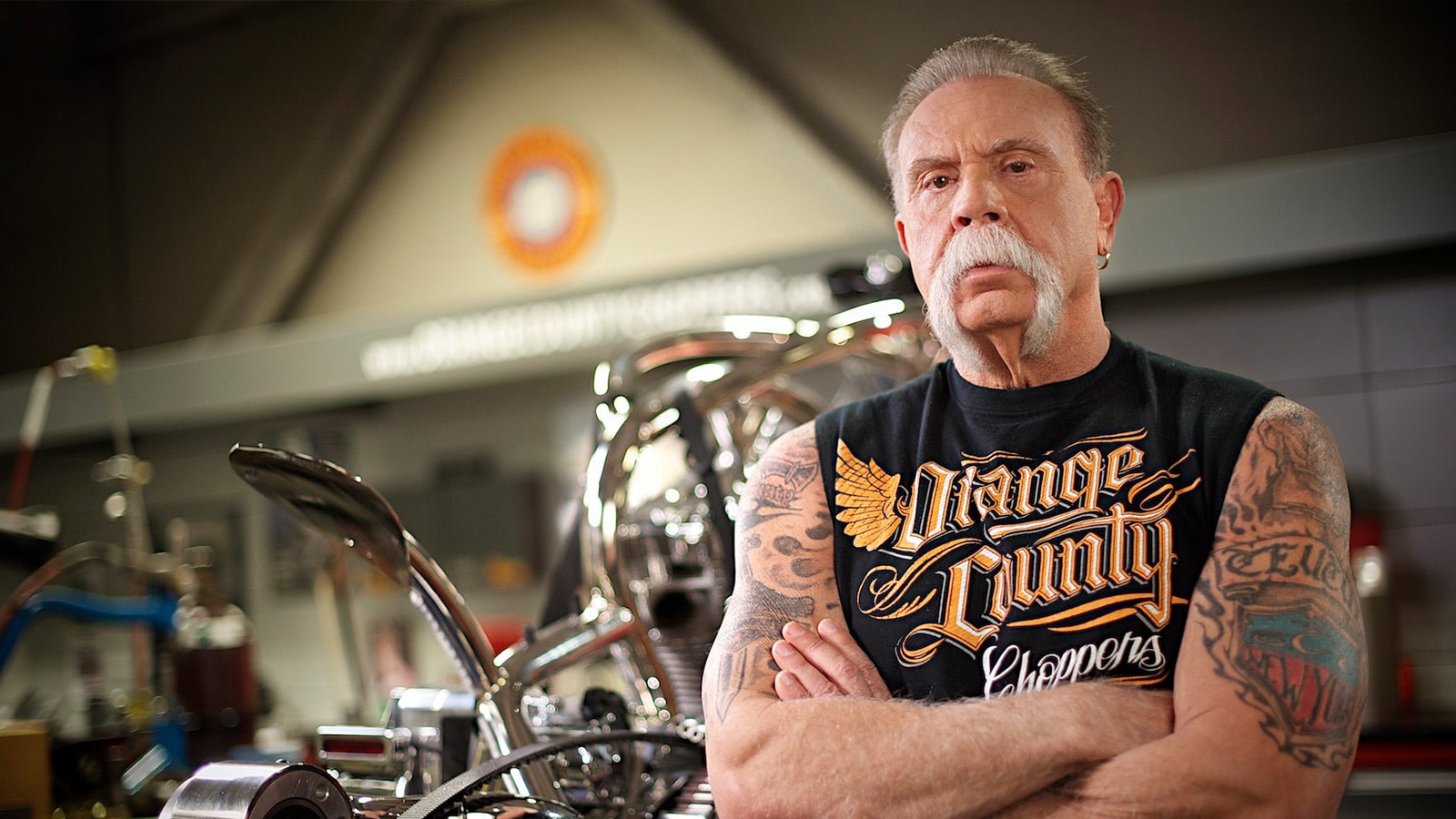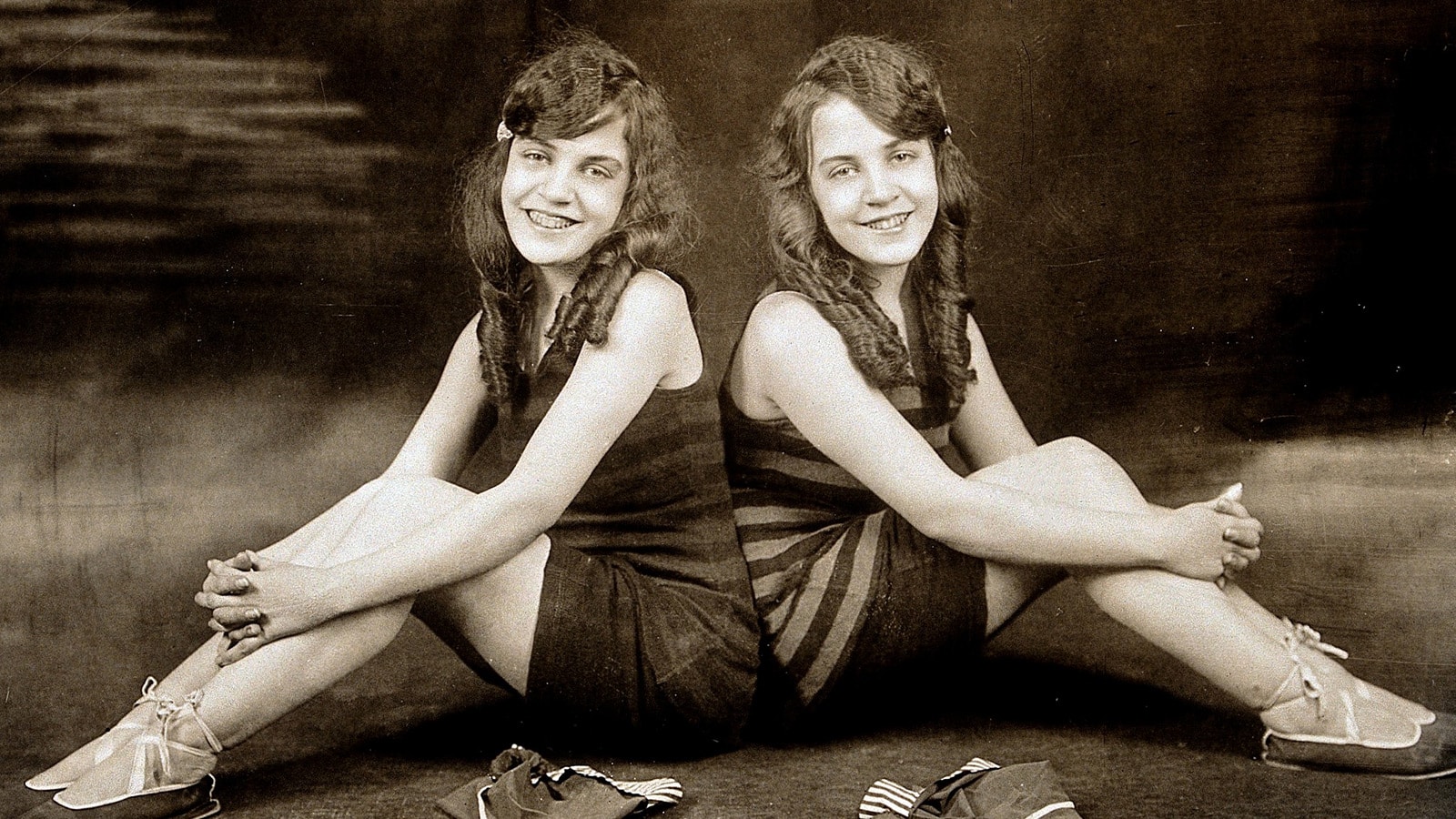Lists
How Drew Pritchard Turns Junk into Money

Turning forgotten, seemingly valueless pieces of anything into valuable, beautiful-looking items is not an art easily mastered by anyone, except if your name is Drew Pritchard. Ever since the premiere of his show “Salvage Hunters”, Drew has continued to find and recover some of the most beautiful artifacts in the UK and the rest of Europe, whether these are centuries-old or modern ones.
There’s a lot of work behind Drew’s treasure-hunting escapades, but how exactly does everything become possible? Stay here to take a look into the processes and detailed work which have turned Drew into one of the most popular antique traders around the world, from his beginnings, how he became a dealer, his businesses, methods, and current and future projects and TV shows.
Contents
Drew’s Beginnings
Before getting into the details about Drew Pritchard’s current career as an antique and decorative items trader, it’s mandatory to know how he started in the industry.
Drew’s love for everything old was inherited from his father, an antique collector who owned everything from old cars to musical instruments, all of it stored in the family’s house in Glan Conwy, in North Wales. This set an example for the young Drew, who at only 11 years old was completely convinced that he wanted to be an antique dealer, as he confessed in an article for Homes & Antiques in 2022.
Nonetheless, the value of antiquities didn’t attract Drew right away; it was the thrill of finding broken and scattered items and bringing them to life what motivated him to go on item-hunting trips into the countryside with his best friend John Tee, nowadays known by the “Salvage Hunters” audience as Tee. The kids would collect as many items as they could to sell them for pennies, then spending their earliest earnings on sweets.
Learning & Business
Having found his path in life at such an early age, after finishing school, Drew didn’t hesitate in taking an apprenticeship in glass restoration. Growing used to this field was a great career start for him, who later started a small business which received everything from old window glasses to doors, and other items people would waste away otherwise.
As Drew wrote in a 2022 column, back in the day his business depended purely on an ad he put in a local newspaper, his old VW Beetle, and the solidarity of his parents for letting him set up his office in their front yard.
His knowledge of glass restoration helped Drew in identifying the good items brought to his shop, making a living out of it by selling them for around £4 to a trader. Surprisingly, it was that same trader who later advised Drew to take his glass windows to art fairs in other cities, and sell each for £10, resulting in Drew making so much more money than he had ever earned so far, by closing deals totslling thousands of pounds in only one morning.
From then on, Drew learned the art of trading all types of decorative items, with both local and international art traders.
https://twitter.com/DrewPritchard/status/1534947916799954947
How Does He Know What He Wants?
Improving a skill is usually the combination of experience, hard work, and a bit of luck. It’s the same case for Drew Pritchard, whose beginnings in the art and antiquity trading industry were a matter of being in the right place at the right time, but also putting lots of effort into it, to get where he wanted.
Nowadays, Drew’s treasure-searching adventures are driven by the knowledge he’s acquired over decades, and his developed sense of simply knowing what is right: ‘I just have to have something. It’s a Christmas-morning feeling. I have an imaginary house in my head, and when I see things, I put them in it,’ he said in an interview with Homes & Antiques in 2023.
Given that Drew isn’t very strict regarding the object’s age or value, he doesn’t consider himself an antique trader per se. Nevertheless, some details such as the patina, the proven authenticity of an item, and whether these are sold in a complete set or individually also play a huge role in Drew’s purchase choices. It’s a mix of passion and experiences what makes him so great at what he does.
Difficulties Of The Job
While there’s no doubt that antiquity hunting is a visibly exciting career for those involved with it, there’s also a certain degree of uncertainty when it comes to it.
Drew’s early years in the business were spent sleeping in his van, after traveling for hours or days, just to be the first one to enter an antiquity fair, or visit a private collection.
Though the effort was always compensated by the amazing feeling of finding something that no one else could, it was also enduring at times, leading Drew to refrain from putting his safety at risk 13 years into the business: ‘I only stopped when, at 36 years old, I awoke one morning to find that a leak from the roof had frozen on my head in a solid ice drip’, he recalled in a 2022 article, explaining the reason he stopped sleeping in his van.
Though nowadays Drew takes his job more slowly and so with more care, that doesn’t stop him from going to great lengths in his job. Some of his wildest treasure-hunting adventures include a days-long boat trip to buy a couple of lamps which left him stranded on an unknown island, or unearthing a rare Volkswagen pick-up truck from his friend’s backyard.
All in all, no one can say Drew’s job is easy, but it’s also visibly entertaining.
Cars & Design
Though “Salvage Hunters” audiences are used to seeing Drew going anywhere he needs to find furniture, glasses, or antique rugs, he’s deeply interested in a wide variety of other items.
One of Drew’s biggest passions is cars, to the point where started a second business around it. Founded in 1987, DP Classics is an automotive dealership centered on classic or exotic vehicles, which takes Drew’s hobby of turning so-called junk into functional and valuable everyday items to another level.
Drew now owns an extensive classic car collection, his favorites being 1950s and 1960s Volkswagens. His passion comes from his childhood in North Wales, when he was driven around by his parents in barely functional cars, and started shaping into something else by the time he bought his first car at 15 years old. So far he’s owned around 100 cars, some of which he regrets ever selling.
Another one of Drew’s biggest loves is industrial design, a field he grew to admire from the day he was an intern at the glass window restoration shop. Some of Drew’s biggest influences are Bauhaus designer Christian Dell, and English furniture and lighting pieces from the Industrial Revolution and early 20th century, which he restores and sells to interior designers
Drew’s passion for cars and design is deeply explored in “Salvage Hunters” spin-offs “Classic Cars” and “Design Classics”.
Path On TV
Drew Pritchard’s debut on TV was the result of an accidental event. Back in 2010, Drew was casually reading the Antiques Trade Gazette when came upon an advertisement which immediately caught his attention. As he recalled in a 2017 interview with Telegraph UK, the ad posted by a local production company stated that they were looking for a van-owning man who ‘wanders around the country to demolition sites’.
Knowing right away he was the man they were looking for, Drew contacted the company and a year later his show “Salvage Hunters” had a premiere date set, and was ready to film.
Premiered in November 2011 with a 10-episodes per season format, the show became a total success in no time, and even won a National Reality TV Award in 2017 in the category of Best Business Show.
So far, “Salvage Hunters” has premiered 17th seasons on Discovery UK and internationally, and spawning several spin-off series, such as “The Restorers”, “Bitesize” and “Best Buys”.
While “Salvage Hunters” impressive feats aren’t a surprise for those who enjoy seeing the adventure trips of Drew, his best friend Tee, and the work done by the shop’s staff, all of that success was unexpected by Drew. Nevertheless, even if it becomes overwhelming at times, appearing on TV is a motivator for him to improve his job every day, as he said in the same interview.
New Store & Future
Drew Pritchard Conwy-based antiquity shop is famous for many reasons, but in recent years things changed a little for the treasure hunter and his work team.
As Drew announced on the business’s social media in May 2022, he shut down his old showroom to move to ‘new pastures’, but no new location was ever announced afterwards, and all the sales have remained online since then. Drew’s business move doesn’t seem to have affected the show negatively, as seen during the 17th season released in 2023.
As well, Home & Antiquity reported in 2023 that Drew had sold the Conwy home he bought and renovated by himself in 1995, but whether he’ll be moving out of town or is planning on staying is unclear.
While the reason behind these changes in Drew’s life is unknown, he’s been working non-stop on other projects. In early 2022, he launched an English Regency-inspired furniture line with the brand Barker and Stonehouse, on top of releasing his book “How Not to Be an Antiques Dealer” in 2023.
https://www.instagram.com/p/Cj5KTnxsVJ2/
All in all, it’s great to see how Drew Pritchard passed from being a kid fascinated with fixing-up old items to becoming a renowned person in the antiquity business worldwide, along with overcoming all the difficulties and challenges that the job demanded from him.
Regardless of where these new pastures take Drew in the future, it’s great to see how he’s left such an important mark in his field.
Lists
From Carpenter to Gold Rush – Who, and how rich is Chris Doumitt?

Chris Doumitt is a well-known figure in the world of gold mining, mostly due to his appearances in the popular reality TV show “Gold Rush.” Chris has had a fascinating life journey from being a carpenter to becoming a gold miner in the Alaskan Gold Rush. Throughout his career, he’s faced numerous challenges and obstacles, but his determination and perseverance have helped him overcome them all. Chris’s journey is a testament to the fact that with hard work, dedication and a little bit of luck, anyone can achieve success in life.
Contents
Chris’ early life and career
Chris Doumitt was born and raised in the Pacific Northwest, in Portland, Oregon, spending most of his early life on his family’s farm, where he acquired his strong work ethic. He fondly remembers his days on the farm, reportedly learning to drive a tractor before he could see over the windshield. Growing up, he was an outdoors enthusiast, spending a lot of his free time hiking, fishing and camping in the nearby mountains and forests. He was also interested in firearms, and later taught gun safety as an instructor at the Sandy Police Department.
After matriculating from high school, Chris started working as a carpenter, building and renovating houses in the Portland area, continuing for 25 years before any idea of changing professions occurred to him. His journey to becoming a gold miner began when his friend, Greg Remsburg, asked him to build a cabin for him in Alaska; at that time, Greg was employed by the Hoffman family as a construction expert. Initially Chris was only supposed to stay in Alaska for 10 days, but his trip was prolonged to five months, over the course of which he learned about gold mining from Todd Hoffman and his crew. In the end he was hired by Todd, who was impressed by his skills as a miner.
At that time, Discovery’s “Gold Rush” was just getting started, and Chris found himself as one of the original cast members as part of the Hoffman crew. He stayed with the Hoffman crew through the first three seasons, but then left, returning in season four as part of Parker Schnabel’s crew, and has stuck with them until today, becoming one of the most significant members of the crew and a highly skilled gold miner.
Aside from his career as a gold miner and a television personality, Chris has also launched his own line of premium cigars – Doumitt Cigars; he started his company with Harry DeWolf who shares his passion for cigars, and now features a range of handcrafted cigars made from high-quality tobacco leaves sourced from various countries, including the Dominican Republic, Nicaragua and Honduras. The company has received positive reviews from cigar enthusiasts and critics alike – its high-quality tobacco, traditional techniques and stylish packaging have made it a popular choice among aficionados. Chris’s passion for cigars and attention to detail have certainly paid off, as Doumitt Cigar continues to attract a loyal following of fans.
Gold Rush
“Gold Rush” is a popular reality TV series that first aired on the Discovery Channel in 2010. The show follows several mining crews as they search for gold in remote locations across North America, including Alaska, Yukon, and Oregon.
The show features a diverse cast of miners, each with their own unique personalities and skill sets. Some of the main cast members over the years have included Todd Hoffman, Parker Schnabel, Tony Beets, and Rick Ness. Each of these miners leads their own crew, and they face various challenges and obstacles as they attempt to extract gold from their mining sites.
One of the show’s central themes is the high stakes nature of gold mining. The miners must invest significant amounts of time, money, and resources into their operations, with the hope of striking it rich and making a profit. However, the unpredictable nature of the industry means that success is never guaranteed, and miners must navigate a variety of obstacles and setbacks in their quest for the precious mineral.
The show has also had a significant impact on the gold mining industry, inspiring many viewers to take up gold mining as a hobby or a career. It has helped to raise awareness of social issues associated with gold mining, including the impact of mining on the environment and local communities.
The show is filmed on location at various mining sites across North America, with crews facing harsh weather conditions, equipment breakdowns, and other challenges in their work. The breathtaking scenery of the remote locations adds to the show’s appeal, and viewers are treated to stunning views of mountains, forests and rivers.
Over the years, “Gold Rush” has become a cultural phenomenon, attracting a massive following of fans around the world. The show’s thrilling action, compelling characters, and educational value have all contributed to its popularity. “Gold Rush” has also been praised for its realistic portrayal of the challenges faced by miners in their work, and for raising awareness of the environmental and social issues associated with the gold mining industry.
The show has faced some mild criticism on its portrayal of the industry, but despite that “Gold Rush” continues to be a fan favorite, with viewers tuning in season after season to see their favorite miners in action. The show has also spawned several spin-off series, including “Gold Rush: Parker’s Trail” and “Gold Rush: White Water”, which follow some of the main cast members as they take on new mining challenges and adventures.
“Gold Rush” is a thrilling and informative show that provides viewers with an inside look at the world of gold mining. Its exciting action, captivating characters, and educational value have made it a beloved favorite among fans, and it continues to be a popular and influential series in the reality TV genre.
Chris Doumitt’s love life and family
Chris has been married to Sharon for nearly five decades, and the couple have two children together. However, their marriage has faced some very difficult challenges over the years.
One of the most significant was when Sharon was diagnosed with multiple types of cancer. Chris has spoken about how difficult this time was for their family, and how they had to put their personal and professional lives on hold to focus on her health. Fortunately, Sharon recovered by 2017 and is doing well today.
Around that time, Chris had health issues himself, as he’d injured his back while gold mining. He underwent a successful back surgery, which fixed all his problems.
https://www.instagram.com/p/B15TKNDHFHW/
However, that wasn’t the last of challenges in Chris’s life. That same year, his truck was stolen, and with it his passport and credit cards. However, luck didn’t leave his side for too long, as his truck was found shortly afterwards, as the person who stole was arrested in Slave Lake, Alberta. He was able to reclaim his possessions, but his truck was totaled by the insurance company, as the cost of returning it was higher than the vehicles worth.
Chris Doumitt Net Worth
Chris’s success as a television personality on “Gold Rush”, coupled with his cigar company, has allowed him to live a rather care free life. He is reportedly paid $25,000 per episode of “Gold Rush”, and his net worth has been estimated at over $400,000 in 2023.
Conclusion
Over the years, Chris has established himself as a skilled miner and successful entrepreneur, with a range of business ventures outside of his mining activities. Despite the challenges he has faced in his personal and professional life, including his wife’s battle with cancer and the loss of his equipment, Chris has remained determined and focused on achieving his goals. Through his hard work and dedication, he has earned the respect and admiration of his colleagues, fans, and viewers of “Gold Rush.” Chris Doumitt’s legacy as a gold miner, entrepreneur, and reality TV star will undoubtedly continue to inspire and entertain audiences for years to come.
Lists
Meet Teams Competing For $500,000 on “Race to Survive: Alaska”

USA Network launched its newest survival competition series, “Race to Survive: Alaska,” on 3 April 2023. Eight teams of two took on the hardcore challenge of a 46-day, 300-mile race in volatile weather and inhospitable terrain for a chance to take home $500,000. With that much prize money at stake, viewers could expect the competition to be quite intense. In the Alaskan wilderness, however, it was not simply a race but a matter of survival, and this added a great deal of excitement to the reality show. The caliber of the contestants would have been top-notch for them to qualify in the game, so it would be pretty interesting to see how each team fared.
Contents
- 1 All about “Race to Survive: Alaska”
- 2 Meet the teams
- 2.1 Jeff and Hunter Leininger – Father and son duo
- 2.2 Brett Gatten and Esther Sanderlin – Dating for two years
- 2.3 Wilson and Oliver Hoogendorn – Inupiaq brothers
- 2.4 Max Djenohan and Christian Junkar – Outdoor enthusiasts
- 2.5 Cason and Bella Crane – Brother and sister duo
- 2.6 Genevive Walker and Favia Dubyk – Rock-climbing duo
- 2.7 Robin Moore and Elizabeth Killham – New friends
- 2.8 Hakim Isler and Justice Norman – Martial arts enthusiasts
All about “Race to Survive: Alaska”
Over the course of 46 days, teams of two will have to traverse an unforgiving terrain from Ketchikan to Cordova and then up through the Alaskan Aleutian Islands, which is a chain of 55 smaller islands and 14 large volcano islands that extend 1,200 miles from the Alaskan Peninsula to Russia’s Kamchatka Peninsula, without a chartered path, and survive off the land and with what they can carry on their backs. There are six races, and at the end of each one, they will find a crate with one less set of medallions, so the last team to arrive will be left with nothing, and therefore eliminated.
With the cast members having diverse skill sets, the production created the challenges taking that into account, and tried to find the median that would somehow even the playing field, at least initially. As the race progressed, they ramped up the challenges, and the survival skills, endurance, and mental toughness of the participants were greatly tested. The teams had some downtime, as they could only move forward for 12 hours each day, and then wait for the race to recommenc. Even if there were about 21 hours of light at that time in Alaska, they couldn’t keep going. However, essentially the game had no off button, as they were still out in the elements – there were no rooms provided where they could rest properly, comfortably. Once the signal was given that 12 hours had passed, they stopped wherever they might be at that point in the race.
They were given time to regroup at the end of each leg of the race at a survival camp. Those who arrived ahead of the others got first choice of the ideal spot to set up their shelter, and find resources. The teams were instructed to bring whatever they thought they would need for various outdoor activities. There were supplies, however, that were made mandatory by the production, particularly those that would keep them safe. Some packs were heavier than others, and perhaps this was part of a team’s strategy. Heavier ones might slow people down because they would tire more easily, but they had all their bases covered as they brought everything. Lighter ones might make them travel faster, but might lack something they would need later on.
Some said it was reminiscent of “Amazing Race” and “Survivor,” so viewers who watched these two reality game shows would have a fair idea of what it was going to be like. However, Executive Producer Alan Bishop, assured viewers that “Race to Survive: Alaska” had achieved ‘the pure expression of man vs. the wild environment like no other series.’
The production scouted various locations, not just to provide a different kind of challenge at each leg of the race, but also to ensure that every episode had a unique look, feel, and tone, keeping in mind the safety of the cast and crew. That said, bears are a constant threat, and the cast was trained extensively in bear awareness. The weather was also unpredictable, even if they filmed during summer, as they still had days when it rained and even snowed.
Meet the teams
The TV series executive producer reported that the contestants were painstakingly chosen, to ensure that each of them had the essential skills to make it through the race, such as rappelling, rock climbing, swimming, and kayaking. It was paramount that they had navigational skills too, meaning that they could find their way across rough country to various checkpoints using a compass and a map.
The initial pool of 14 teams underwent a pre-boot camp in Leavenworth, Washington State, and skills-based training to assess the degree of competency, and were ranked on a scale of one to five. After that, the production reduced the number to eight teams based on what they wanted for the TV show. Those chosen went through a more serious boot camp in Ketchikan, Alaska. Here are the eight teams that participated in “Race to Survive: Alaska” and some spoilers on their adventures from a couple of episodes that were aired:
Jeff and Hunter Leininger – Father and son duo
53-year-old Jeff might be the oldest contestant, and his 21-year-old son Hunter the youngest, but no one should discount them because both had been going on adventure races for most of their lives. Hunter believed that this prepared them for participating in what he called a ‘dream adventure’ that challenged them like never before; this pushed him way out of his comfort zone. His dad was the one he would trust most with his life on this toughest race across Alaska.
https://www.instagram.com/p/Ce9eFO3p_8g/
Hunter was only seven when he joined a six-hour race, and he’d been hooked ever since. The appeal of adventure racing when he was young was that he could race with his father. He was 11 when he became the National Record holder for the youngest racer to finish the 2012 US Adventure Racing Association (USARA) 24-Hour Nationals in New York. He set a World Record as the youngest finisher at 13 in the 72-Hour Sea to Sea Expedition Race in Florida (2009), and 16 in the Adventure Racing World Series Championship in Wyoming (2017). The secret, he said, was to never give up, even when the going got tough, or he was in a lot of pain.
Jeff might have the right experience to back him up, as he’d participated in over 100 Endurance Races, but it seemed that in getting old, he’d developed some fears that made him hesitate in taking on some of the obstacles, knowing that one mistake could cost them the race. He struggled walking through the marshes, as his foot got stuck in a muddy sinkhole a few times. He also accidentally nicked his knuckle with the blunt side of an axe as he was hammering a spike on a tarp, causing it to bleed.
Brett Gatten and Esther Sanderlin – Dating for two years
Shortly after relocating to Alaska, Brett met Esther through a dating app, and they hit it off as in sharing a passion for the outdoors. As she greeted him on his birthday on Instagram, she called him her favorite mountain man and said, ‘We’ve been on so many adventures already, and I’ve loved everyone of them!!! You truly are my perfect match, with your adventurous spirit, drive, patience, goofiness, competitiveness and spunk!!’ He’s competed in Olympic Track Triathlons, while she’s a Champion Dog Sledder and a bush pilot. She has three kids from a previous marriage, but are both divorcees who found another chance at love, and have been dating for two years, the majority of which they’ve spent hunting, fishing, and going on snowmobile rides.
Both were in their 40s when they joined the ultimate adventure in “Race to Survive: Alaska.” The two carried 78-pound packs, heavier than anybody else’s, and it seemed to create a problem for them considering that it was the hottest time of the year in Alaska at 82F degrees. On top of that, they were a bit overdressed, so it wasn’t a surprise when Esther was heard saying repeatedly that it was really hot, and she needed electrolytes. Brett, however, just wanted to keep going, perhaps not realizing that Esther’s condition was becoming serious.
Esther passed out from severe heatstroke, and viewers could hear one of the First Responders saying that she was unresponsive. She was airlifted from the race and taken to a hospital, where she stayed in the Intensive Care Unit (ICU) for three days, fortunately making a full recovery.
Wilson and Oliver Hoogendorn – Inupiaq brothers
Wilson is a 23-year-old gold diver, while his older brother, 25-year-old Oliver, is a commercial fisherman. The two were natives of Nome, Alaska, so it was like they had home-field advantage. If that wasn’t enough to give them an edge over the other teams, then being the first Native Alaskan team to reach the summit of Denali in 13 days, and to ski down from the highest peak in just one day should do it. The Inupiaq brothers won over viewers quickly, as they gave off positive and fun vibes; it was a survival race, but they seemed to be having the time of their lives. Wilson is keen on experiencing new things, and likely to dive head-first into danger, while Oliver is the voice of reason.
Max Djenohan and Christian Junkar – Outdoor enthusiasts
33-year-old Max was not new to surviving in the wilderness, as he’d previously appeared in multiple seasons of Discovery Channel’s “Naked and Afraid.” He spent 156 days naked on four continents, and was only provided with a satchel and allowed to bring with him one useful item, such as a fire starter or a machete to survive. This meant that he had a great chance at winning this race, as he not only had a partner, but also a backpack full of things he would need. 25-year-old Christian is an experienced ice climber with excellent navigational skills, having worked as a mountain guide. The two met through a common friend; both are opinionated so it’s expected that they will butt heads during this race.
Cason and Bella Crane – Brother and sister duo
Cason, 29, and his 25-year-old sister Bella are Ivy League graduates. Their mother, Isabella de la Houssaye, had participated in the Ironman World Championships and completed 50 marathons in just about 50 states. After she was diagnosed with stage IV lung cancer at the age of 54, she went on an adventure with each of her five kids. She took Bella with her to climb Mount Aconcagua, and she and Cason ran a marathon in Alaska.
The siblings are very much into outdoor adventures. Cason is the first openly gay mountaineer to successfully climb the highest mountains of each of the continents, referred to as the Seven Summits, and plant the Pride Flag at the age of 20. This was a goal of the Rainbow Summits Project that he launched to raise awareness and funds for the American non-profit organization called The Trevor Project, which was focused on suicide prevention efforts among LGBTQ youth. On her own, Bella completed the Pacific Crest Trail, which is a 4,000km-long hiking trail with elevation that ranges from 110 feet above sea level to about 13,000 fee,t, 4,000 meters and passes through seven national parks and 25 national forests. The siblings hoped to make their family proud, and show the world what they were capable of, considering their background.
TONIGHT IS THE NIGHT!!! #RacetoSurvive on @USANetwork at 11pm ET!!! #CraneNation #CasonandBella pic.twitter.com/Oa67woAWyb
— Cason Crane (@casoncrane) April 3, 2023
Genevive Walker and Favia Dubyk – Rock-climbing duo
Genevive, 33, is a wilderness first responder as well as a certified rock-climbing guide and instructor. She joined the Rock Guide Course, an affinity program of the American Mountain Guides Association, to hone her skills in various terrains, rope management, efficient transitions, and self-rescue. Self-discovery is a lifelong journey for her, as she admitted to having a never-ending battle with her own identity, saying, ‘Never felt black enough or white enough so mixed was my default.’
She met Favia, who is a year older than her, at a rock-climbing festival, and it appeared that they bonded over wanting to create and establish space for black female climbers. Favia is a physician and a professional rock climber – for seven years, she held the 100-meter track record at Harvard University. Her story was quite inspiring, because she went through a lot from being an athlete to being bedridden as she had advanced-stage Hodgkin’s lymphoma, and underwent chemotherapy. After she recovered, she proceeded to get her athleticism bac, and competed in the “American Ninja Warrior,” an entertainment sports reality show. She didn’t want to have any regrets, and became highly motivated to live life to the fullest.
Robin Moore and Elizabeth Killham – New friends
The two women met in Egypt, as they were having a grand time skydiving over the Great Pyramids. As they shared a passion for outdoor adventure, it didn’t take much for them to want to join “Race to Survive: Alaska,” which would certainly test their survival skills. Robin, 45, is a licensed pilot, who took on the mountaineering challenge of the Seven Summits. Elizabeth, 36, had backpacked her way around the globe. Both women worked in the medical field, with Elizabeth as a veterinarian and Robin as an ER doctor.
Hakim Isler and Justice Norman – Martial arts enthusiasts
Some described the team of Hakim and Justice as the most unusual. Hakim, 45, is an army veteran who was deployed in Operations Iraqi Freedom and Enduring Freedom, serving in Special Operations Forces as Psychological Operations Sergeant. He was dubbed the “Black MacGyver” because of his know-how of primitive survival skills, and this was tested when he participated in the challenge of surviving the wilderness with the barest of essentials in Discovery Channel’s “Naked and Afraid” – Hakim taught this particular skill set to veterans who suffered from post-traumatic stress disorder (PTSD). He was reported to be a bona fide ninja as well, having earned a 5th Degree Black Belt in To-Shin Do or Ninja Self Defense. He talked about the history of ninjas in Discovery Channel’s “Unsolved History.”
For years, Justice, 38, practiced the Indonesian Martial Art of Merpati Putih. He met Hakim when the latter enrolled in a course on how to perceive things without using one’s eyes. When the two joined hands in “Race to Survive: Alaska,” they called themselves team ninja, as Hakim explained that ninja meant one who persevered or endured. They aimed to show everyone what people with a background in martial arts discipline were capable of.
Since “Race to Survive Alaska” is still ongoing, it will be interesting to see how the relationship between the two people on each team evolves as the race progresses, and the pressure to win possibly becomes too much for them. Will some teams form alliances, or will they be too wary of each other, not wanting to be with a team that slows them down, or gets the better of them? With each episode, viewers will get a chance to know each individual, as more of their personalities is revealed.
The difficulties that these teams face are all too real, as one team was eliminated during the premiere episode, not by finishing last on the first leg of the race, but because someone from that team was rushed to the hospital for a medical emergency. The first couple of episodes that were aired might have shown which teams were leading in the race, however, as there are still many adventure challenges ahead in the most extreme terrain in the world, anything can happen, and most likely will!
Lists
How Paul Teutul Sr. Built a Motorcycle Empire, but Lost His Family Along the Way

Paul Teutul Sr. was one of the most recognized faces in the motorcycle-building industry, and this was made possible through the popularity of his reality television series “American Chopper.” The crowd cheered for him and his son Paulie or Paul Jr., in every bike convention that they participated in, and some of the most high-profile motorcycle enthusiasts around the world ordered a chopper from his New York shop, Orange County Choppers. The business empire that he created from the ground up reached the pinnacle of success, and should have made his family closer and unified than ever, as most of them contributed to the family’s hard-earned triumph, but sad to say, it went the opposite way. Paul Sr. mentioned during the early years of the Teutuls’ success that he would often wonder as to what would be the ultimate cost of that fame.
Contents
All about Paul Teutul Sr. and his volatile upbringing
Aside from his amazing bike-building skills, Paul Sr. gained worldwide recognition due to his turbulent relationship with his son, which was witnessed by millions of viewers in their reality TV show. While some insisted that it stemmed from the TV show’s writer’s imagination, those who personally knew Paul Sr. would say otherwise. Some of them weren’t shocked at the level of intensity and ferocity of the fights.
His childhood in a chaotic home
Paul Sr. was born with a middle name, John, which made him an official junior as his father was named Paul John Teutul, but he only found out about it when he applied for a passport. His parents never told him about it, so that they could easily distinguish between father and son; it was quite confusing but he said that was how it had always been with their family. His father was German-Austrian, while his mother was pure Italian, and his grandparents from both sides were European immigrants who lived in New York City before settling down in Yonkers.
Corporal punishment was the norm back then, and his parents took it to the extreme as they used a cat o’ nine tails to beat him and his sisters each time they made a mistake that angered them. He recalled that his stay-at-home mother certainly knew what buttons to push when his father came home from work, and so they ended up receiving more beating. It was always a case of a ‘damn if you do and damn if you don’t’ situation – if he was hit without doing anything wrong that day, his father would just tell him to consider it as punishment for a future mistake.
They invented the word dysfunctional
Paul Sr.’s grandfather was successful, and owned houses in the neighborhood that he’d built with his own hands. His mantra was work, work, and more work, and this was his legacy to his clan. While Paul Sr.’s father was a hard worker too, he wasn’t good in business, and failed twice with his investments. As a result, his father was highly dependent on his grandfather, and that made his mom angry; she hated the control that her father-in-law had over her husband. It created a rift in the family, and his mom forbade them to go near their grandparents, which they often disobeyed, and were caught sneaking to eat with their grandmother who lived a block away.
Their house was a battlefield, a picture of chaos, as he grew up listening to so much yelling and screaming. He and his siblings weren’t close, and didn’t look out for each other because they were all afraid to make a mistake. To make matters worse, his mother was a closet alcoholic, while his father would also drink, although he never once saw him drunk. The vicious cycle in their home was that his mother would drink all night and then fight with his father when he returned from work. When it was daytime, she would be asleep and his father would leave to work only to return home to more fighting with his mother. In 1978, his mother died of cirrhosis of the liver.
Meet the Teutuls
Growing up in such a violent environment, Paul Sr. made a vow that his family life would be different. Despite the miserable marriage that his parents had, he still believed in marriage, and wasn’t deterred at all to build a family when he found the right woman for him.
Paul met Paula
After his nine-month stint in military service with a merchant marine ship called Enid Victory, he reconnected with an Italian high school classmate, Paula Leonardo, and they were married in 1972. While he wanted to settle down and start a family, he continued to mess around for a few years, and did odd jobs. His drinking escalated, and Paul Sr. sported a whiskey buzz while working diligently for Metropolitan Tobacco.
It was also during that time when he learned to ride a motorcycle and was hooked. Paula said that when she met Paul Sr. in high school, he wasn’t as angry then. However, she described him as someone ‘between a lost puppy and the kind of guy you wouldn’t want your daughter to date,’ but he charmed her. They went through many hardships in life, but he never gave up. Back then, she already knew something was wrong with their marriage but couldn’t figure out what it was exactly. She was determined to make it work, however, and took it as her responsibility to fix it.
The Teutul children: Paulie, Danny, Mikey, and Cristin
While Paul was determined to keep his habits from his wife, Paula eventually realized that he was addicted to drugs and alcohol. Her motivation to stay together as a family was their children, and she knew she had to be strong for everyone. At that time they already had three sons, six-year-old Paul Jr, four-year-old Daniel, and two-year-old Michael. Their only daughter, Cristin, arrived in 1982 when Paul was already in his sophomore year in recovery. Amidst the pain and the confusion that she underwent during the early years, she relied on the eldest son, Paulie, and this somehow took away his childhood, even if he was known to have been the mischievous child who could get away with everything. He was popular in school, the captain of the football team, and the creative one in the family who loved tinkering and experimenting, like his old man.
Of the four Teutul children, it was Danny who was the most responsible, and the one who did great in school. Just like Paulie, he was also into football and became a quarterback for the varsity team. Mikey was the laid-back son who was contented to be just a part of whatever his brothers were doing. Cristin was the daughter and sister they all prayed for. The boys complained that she was such a spoiled girl, but in reality, they were the ones who really showered her with time and attention. She was a social butterfly in high school, but studied hard in college and was rewarded with a nursing degree.
How Paul Sr. built his bike-building empire
Looking back, Paul Teutul Sr. never thought that it would have been possible for a dysfunctional family of bike builders to end up as popular TV stars.
Started with a welding shop where he customized his first chopper
With all the booze and drugs, most people in their neighborhood including former teachers voted that Paul Sr. would end up as a loser, if not for the welding skills he developed after the elective course he took up in high school. He initially worked at his brother-in-law’s welding shop, but it went bankrupt. He then worked for a few local shops, but realized that he was the type of person who needed to be his own boss, because he couldn’t take orders. He took a risk by investing in welding equipment, and offered his services around the community from his truck. Eventually he expanded, and opened up a shop that flourished, as he kept receiving work until he met a smart guy named Fred who became his partner – the name of the shop was P&F Welding. Aside from being an expert in steel fabrication, Fred was also into motorcycles, so Paul learned so much from him, working with steel frames and building just about every part of a motorcycle. It was then that he customized his own Harley, and felt great about it.
From a small welding shop into a 10,000-square-foot Orange County Ironworks
Paul and Fred had a falling out after their shop burned down due to an accident. When Fred opted out, Paul picked up the pieces and opened up his own shop, Paul’s Welding. Soon, his sons worked in the shop as well, and it was then that he realized that Paulie had a gift for steel fabrication, after he’d finished a vocational course in welding, but all the Teutul children started at the bottom of the company doing odd jobs. The company was renamed Orange County Iron in 1986, after Paul Sr. bought a 7,000-square-foot shop in Montgomery, New York. There was a huge demand for iron-related products, so he expanded again, and relocated to a 10,000-square-foot warehouse to accommodate all the orders that they received. In 2004, the company had another rebranding and restructuring made by his second son, Danny, Orange County Ironworks.
The hobby turned into Orange County Choppers
Paul Sr. and Paulie shared a common interest in motorcycles. When Paul Sr. was caught by the bike-building bug, he took his eldest son with him. At that time, he was already divorced and was living alone in an apartment. When he started building a bike, he would call on Paulie to help him out. Eventually, in 1999, they co-founded Orange County Choppers in Newburgh. Initially, they had a hard time promoting their brand, but through hard work and amazing craftsmanship, their choppers were eventually noticed through word of mouth. While they were slowly becoming recognized in the bike-building industry, it hadn’t translated to profit. They needed a boost, as had happened to Jesse James who paved the way for chopper builders to attract global recognition through “Monster Garage.”
“American Chopper”
The Teutul’s time to shine came when Discovery Channel offered them a reality TV show of their own, “American Chopper.” After they watched the pilot episode, they couldn’t help but blame each other for doing something that they believed would ruin their reputation and eventually their business – they were annoyed that the producers hadn’t editing out all the fights and intense yelling between father and son in the episode that aired. Paul Sr. threatened the producer that he would go to Los Angeles just to beat him up – the producer said to wait for the result. The next day, they were shocked at the high TV ratings the pilot episode achieved; even the servers of their website broke down, because they couldn’t handle the influx of messages they received because of the TV show. From then on, each Monday night millions of viewers would tune in to Discovery Channel to see their work on building beautiful customized choppers, and at the same time be fascinated with the family drama that rivaled popular daytime soaps.
What had been the ultimate cost of the Teutul fame?
Paul Sr. already knew back then that the kind of popularity and success that his family achieved would surely cost him something valuable. It was just too late when he realized that fame would break his family apart.
Design time is over, time to BUILD!#OCC #PaulSr #CustomChopper #Custom #Motorcycles #Build #AndSoItBegins pic.twitter.com/lbI7mxNRIb
— Paul Teutul Sr (@paulteutulsr) February 16, 2022
The very public termination of his eldest son’s services
Discovery Channel executives salivated in their offices when Paul Sr. and Paulie unleashed their infamous tempers in one of the episodes in the sixth season of “American Choppers”, as they imagined the kind of boost it would gain them in the ratings; other members of the Teutul family were worried that it would be the last time they would see the two together.
Many viewers thought that it was scripted, because they found it unthinkable that Paul Sr. would fire his only son, who co-founded the customization shop business that put the Teutul family on the bike-building map. Father and son argued about work attitude and habits. They yelled at each other at the top of their lungs. Paulie Sr insisted that his son Paulie follow his way of doing things such as being early coming to the shop. The son justified his tardiness, as he said that it didn’t matter if he came in late because, at the end of the day, he didn’t go home without finishing his work. The moment that led to his firing was after he uttered the line, ‘the shop would have been burned to the ground without me,’ and then he threw a chair in his father’s office out of frustration. He also reminded his father that he technically didn’t work for him since he co-founded the shop, and so was a business partner.
Lawyers made some modifications to the Teutuls’ contract, so Paulie could still appear in the TV show after he was fired by his father. It allowed father and son to continue working and filming, but never together, so avoiding more problems. However, after that season, Paulie left the show.
Paul Sr. and Paulie filed lawsuits
When the Teutuls’ contract was modified and made Paulie an independent contractor, it also affected the 20% shares that the father gave his son when they co-founded Orange County Choppers; Paul Sr. was given the option to buy him out. In May 2009, he had the shares appraised at zero percent value, and tried to have them returned by his son, but Paulie ignored his demands, which led him to file a lawsuit against his son. Paulie countersued, and to his delight, the lower court ruled in his favor. The case was elevated to the Court of Appeals, and his son won the appeal too – the appellate judge declared that the buyout was invalid.
Mikey tried to fix the rift in the family
After joining the business as the assistant general manager, Mikey witnessed the deterioration of the relationship between his father and eldest brother. He tried his best to fix the problem by mediating between them, but it was futile. He had enough problems of his own to deal with, because he’d checked into a rehabilitation facility to work on his alcohol addiction – apparently, he’d inherited this Teutul problem. Sometime before “American Chopper” ended, Mikey was forced out of the business by Paul Sr., stating that he had been given many options to be successful, but he never did. He later on joined Paulie’s company.
https://www.instagram.com/p/B9HSgYQBgWJ/
The lawsuits that were filed affected the family in many ways. Paul Sr. didn’t attend the wedding of his son Paulie, even though invited. Everyone thought that the drama between the Teutul family wouldn’t end, but time heals all wounds, and eventually they all moved on. Father and son even worked together in a spin-off series called “American Chopper: Sr. vs Jr.” but never on any bike-build project, to avoid confrontations. It lasted for four seasons, and when they did a reboot called “American Chopper: The Last Ride” in 2020, everyone had mellowed down. Paulie just wanted to enjoy quality time with his father for one last time, so he agreed to everything that Paul Sr. wanted, just as when they’d created their first bike together.
-

 Instagram Stars3 months ago
Instagram Stars3 months agoKatelyn Runck – Measurements, Height, Age. Plastic Surgery?
-

 Twitch Stars1 month ago
Twitch Stars1 month agoThe Sphere Hunter’s Biography: Trans? Age, Face, Real Name
-

 Actors6 months ago
Actors6 months agoWho is Dylan Llewellyn? Age, Height, Gay? – Biography
-

 Youtube Stars3 months ago
Youtube Stars3 months agoHow Rich is Judge Frank Caprio? Net Worth, Salary, Family, Bio
-

 Web Stars6 months ago
Web Stars6 months agoWho actually is Hard Rock Nick? Net Worth, Real Name – Wiki
-

 Businesspersons4 weeks ago
Businesspersons4 weeks agoThe Untold Truth Of Brandi Love’s Husband – Chris Potoski
-

 Celebrity Spouses2 months ago
Celebrity Spouses2 months agoThe Untold Truth Of Rashida Tlaib’s Husband – Fayez Tlaib
-

 Instagram Stars4 weeks ago
Instagram Stars4 weeks agoThe naked truth of Claire Abbott’s disappearance: Where is she now?










































